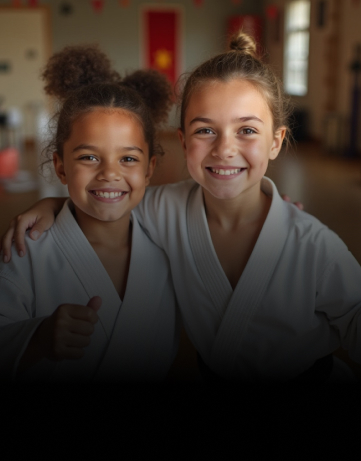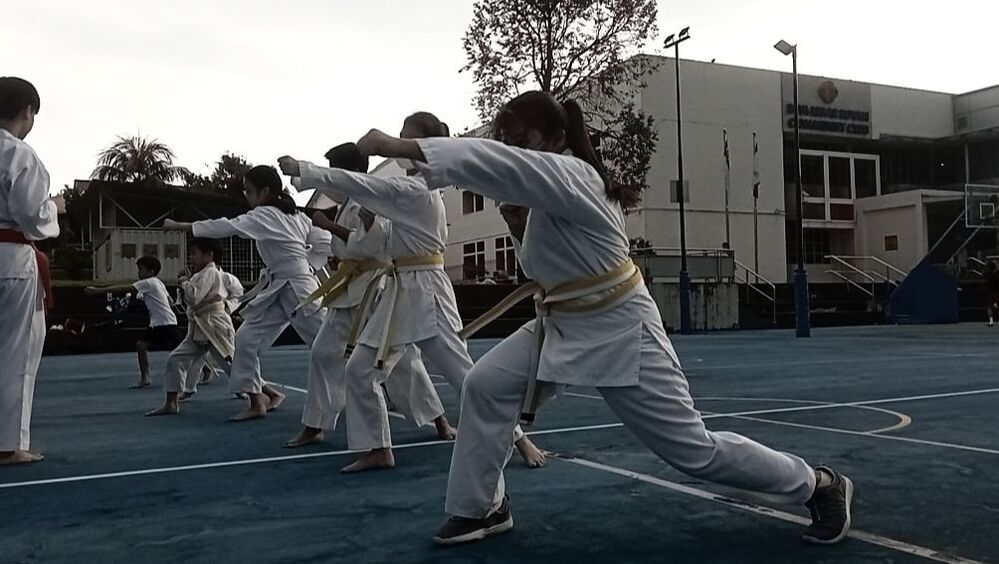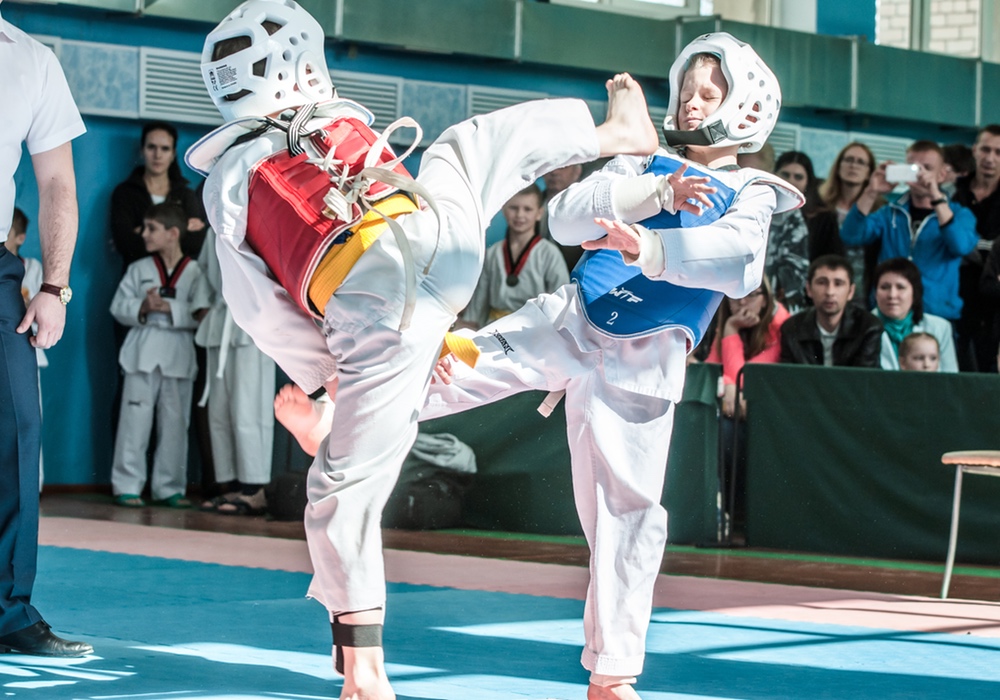Legacy Martial Arts – Creating Stronger Kids and Families Through Martial Arts
Wiki Article
How Karate for Children Can Increase Self-confidence and Discipline in Youthful Martial Artists
Karate for children provides an one-of-a-kind chance to develop self-confidence and technique in young martial musicians. As they find out brand-new strategies and face obstacles, they not only acquire skills but likewise create a solid sense of self-respect. This structured setting encourages them to appreciate the journey of renovation. However how does this training convert into their day-to-day lives? Discover the deeper connections that make karate even more than simply a sport.The Importance of Self-confidence in Childhood Advancement
Self-confidence is a necessary foundation in childhood growth. When you support your child's self-worth, you empower them to face difficulties, take threats, and reveal themselves easily. Kids with self-confidence are extra going to discover social scenarios and new activities, which can bring about enduring relationships and important experiences.Encouraging your kid to tip out of their comfort zone cultivates durability. They learn that failing isn't the end however rather a stepping rock to success. By celebrating their success, no issue just how little, you assist them acknowledge their capabilities and worth.In this journey, assistance and positive support from you play an essential function. Whether it's with praise or merely existing, your participation improves their self-confidence. As they grow, this confidence ends up being a long-lasting asset, furnishing them to navigate both difficulties and opportunities with a solid sense of self.Just How Karate Teaches Technique and Focus
Karate helps you build discipline and focus through its organized training routine. As you exercise mindfulness throughout each session, you'll discover to concentrate far better both on and off the mat. Plus, setting and attaining objectives in karate enhances your ability to remain committed and attentive.Structured Training Routine
While you participate in karate training, you'll swiftly uncover just how an organized program infuses discipline and focus in young professionals. Each course follows a particular layout, consisting of warm-ups, technique method, and sparring. This consistency teaches you to value the procedure and dedicate to improvement. As you find out types and methods, you develop a feeling of responsibility for your very own progress.The structured setting motivates you to establish goals, whether mastering a new belt or refining a kata. You'll locate that remaining concentrated throughout courses and drills develops your concentration. The self-control you cultivate in martial arts expands past the dojo, favorably impacting your schoolwork and day-to-day routines. Each session enhances the significance of devotion, helping you expand right into a more self-displined person.Mindfulness in Technique
As you practice karate, you'll discover that mindfulness comes to be a crucial part of your training. Each step needs your complete attention, assisting you remain concentrated on the here and now moment. You'll discover to disregard distractions and focus on your breathing, movements, and objectives. This heightened understanding sharpens your reflexes and boosts your discipline.During sparring or forms, you'll find the importance of being emotionally present - Karate Salisbury MD. You'll discover just how this emphasis not only enhances your technique but also constructs your self-confidence. By exercising mindfulness in karate, you grow perseverance and strength, crucial traits that expand past the dojo. This way, martial arts shows you to harness your mind, helping you create a regimented technique to obstacles both on and off the floor covering
Goal Setup Techniques
Setting objectives in karate isn't almost making belts; it's a powerful means to cultivate technique and focus. When you set particular, achievable targets, you produce a roadmap for your progress. For example, as opposed to just aiming to boost your kicks, try concentrating on grasping a specific method monthly. This approach keeps you inspired and engaged.Breaking down bigger goals into smaller, convenient steps assists you track your progress and celebrate tiny triumphes in the process. Whether it's refining your position or increasing your sparring endurance, every objective enhances your commitment. As you achieve these objectives, you'll develop confidence in your skills and establish a solid feeling of self-control that prolongs beyond the dojo into daily life.Structure Strength Through Martial Arts
Martial arts, particularly martial arts, supplies youngsters a distinct opportunity to build durability in a helpful atmosphere. In classes, they deal with obstacles that press their limitations, whether it's sparring or mastering a brand-new technique with a companion. Each setback, like a missed kick or a lost match, ends up being an opportunity to find out and grow.As they exercise, children find out to welcome pain and maintain attempting, also when things get hard. They discover that failure isn't completion; it's part of the trip. This attitude helps them recover stronger, not just in the dojo, but in daily life.With each challenge they conquer, your kid constructs confidence in their capability to tackle challenges, fueling their decision. With karate, they'll understand that strength isn't nearly physical toughness; it's regarding psychological grit and determination, empowering them to deal with whatever life throws their method.The Role of Regard in Karate Educating
Respect is a fundamental principle in karate training, fostering a society of discipline and camaraderie amongst students. When you tip onto the dojo flooring, you're not just finding out methods; you're also learning to respect your teachers, peers, and the art itself (Karate Salisbury MD). Bowing at the start and end of class isn't just a procedure; it symbolizes your acknowledgment of others' initiatives and dedication.As you develop mutual respect, you'll locate it enhances your understanding experience. You'll listen a lot more attentively to your trainer and gain understandings from fellow students. This atmosphere urges constructive criticism and support, permitting every person to grow together.Moreover, respect grows self-control. Acknowledging the worth of effort and humbleness helps you remain concentrated on your training. Subsequently, this respect converts into your everyday life, enhancing your interactions and partnerships outside the dojo. With martial arts, you learn that regard is vital for individual growth and community structureAttaining and setting objectives Success in Karate

Social Abilities and Teamwork in the Dojo
While training in the dojo, children naturally create necessary social skills and teamwork capabilities. As they practice together with peers, they find out to connect efficiently, share area, and read more assistance one an additional. Each class provides possibilities for partnership, whether it's throughout partner drills or group workouts. This synergy fosters relationships and creates a sense of belonging, making the dojo a nurturing environment.Kids also obtain important dispute resolution abilities. When they experience challenges, such as disputes during sparring, they find out to navigate these situations constructively. They practice perseverance and compassion, recognizing that every person has different staminas and weaknesses.Moreover, taking part in group activities grows a feeling of liability. You'll see your youngster finding out to count on teammates and take responsibility for their role in a group. These experiences not only improve their martial arts trip yet also furnish them with social devices they'll carry right into other locations of life.
The Long-Term Benefits of Martial Arts Beyond Childhood
As youngsters mature and shift into their adult years, the benefits of karate expand far beyond the dojo. You'll locate that the discipline and focus discovered with martial arts can convert into your academic and expert life. Establishing and achieving goals in martial arts fosters a strong work principles, which can press you to succeed in any type of endeavor.Moreover, the self-confidence obtained from competing and understanding techniques can boost your self-esteem, helping you tackle difficulties head-on. This durability ends up being very useful as you encounter the uncertainties of adulthood.Additionally, the social skills developed through teamwork and camaraderie in the dojo can cause much better partnerships in both individual and professional balls. You'll find out to connect effectively, resolve disputes, and develop an encouraging network.Ultimately, karate shapes not simply proficient martial musicians, yet well-rounded individuals prepared to handle the globe.Regularly Asked Inquiries
What Age Is Ideal to Begin Martial Arts for Children?
You can start martial arts as early as age 4 or 5, but it often relies on your kid's maturity and passion. Finding a class that fits their age and energy level makes a big distinction.Are There Any Kind Of Health Benefits From Practicing Martial Arts?
Yes, practicing karate deals countless health advantages. You'll improve your sychronisation, adaptability, and strength while enhancing cardiovascular fitness. Plus, it enhances focus and psychological health, making it an amazing choice for overall physical and psychological health and wellness.How Often Should Youngsters Attend Karate Classes?
You need to motivate your children to attend karate classes at the very least 2 to 3 times a week. Uniformity helps them learn strategies successfully and develop skills, making their experience much more fulfilling and satisfying in the future.Can Karate Aid With Handling Anxiousness in Kid?
Yes, martial arts can aid take care of anxiousness in youngsters. It teaches focus and self-constraint while offering a safe outlet for energy. You'll notice your youngster expanding a lot more confident and tranquil as they exercise frequently.What Gear Is Needed for Kids Beginning Karate?

Report this wiki page